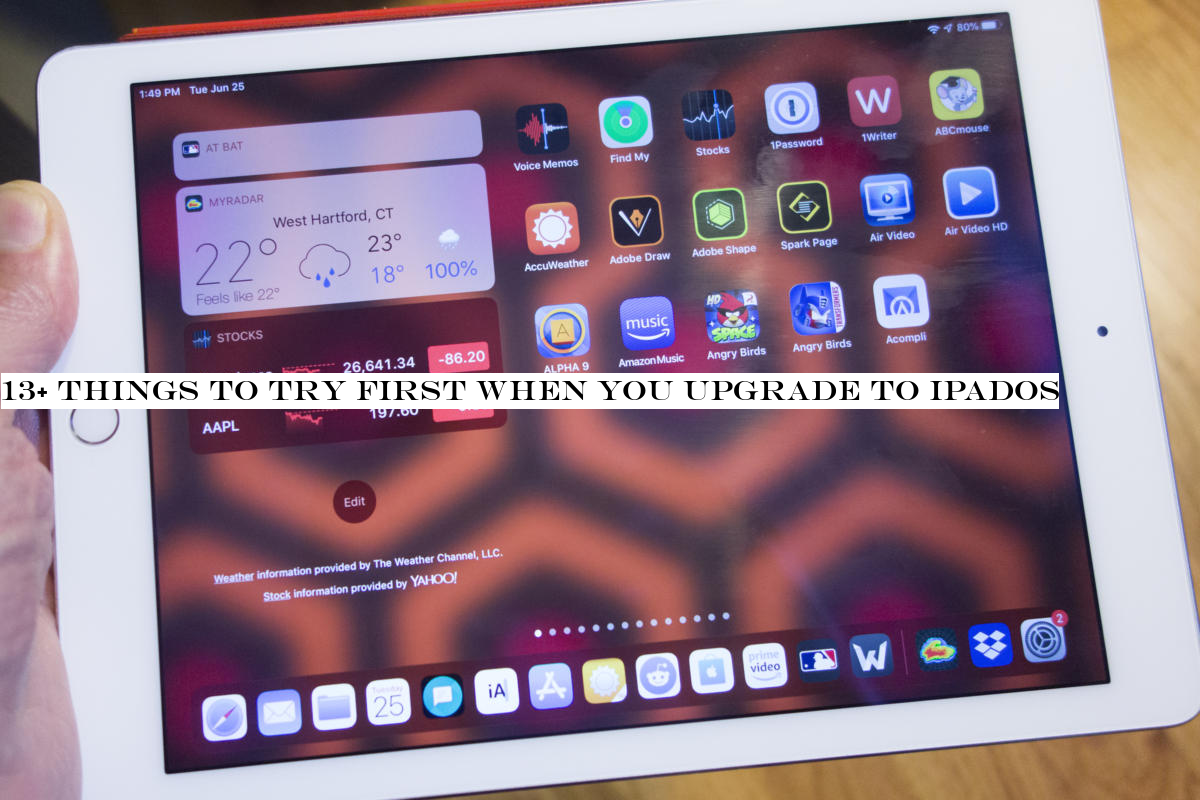Music
Trailers
DailyVideos
India
Pakistan
Afghanistan
Bangladesh
Srilanka
Nepal
Thailand
StockMarket
Business
Technology
Startup
Trending Videos
Coupons
Football
Search
Download App in Playstore
Download App
Best Collections
Technology

LONDON & The benefits of getting digital tools into the hands of frontline workers are becoming clear to more companies & and they&re spending more money to help those workers be successful. Whether they be in manufacturing, logistics, maintenance, healthcare or hospitality, non-office based workers play a significant role in an organizationsuccess because they are often the first point of contact with customers or products.
In addition to relying on smartphones and tablets for certain job roles & particularly those that require hands-free computing & there is growing demand for wearables such as smartwatches and augmented (or virtual) reality headsets.
To read this article in full, please click here
- Details
- Category: Technology
Read more: How to roll out the right tech for frontline workers
Write comment (90 Comments)
Microsoft this week gave enterprise administrators a new way to obtain previews of upcoming feature upgrades for testing and preparation before those updates go live.
The Redmond, Wash. company cited customer feedback - essentially saying that this is something enterprises demanded - for the change. But Microsoft could also be trying to boost the number of business users testing pre-release code because its until-now-only-outlet - Windows Insider for Business, or WIfB - was insufficient.
Microsoft heavily relies on customers for testing of Windows 10, including the Insider volunteers and Windows 10 Home and Pro users, who traditionally have adopted feature upgrades before large organizations deploy them.
To read this article in full, please click here
- Details
- Category: Technology
Read more: Microsoft uses WSUS and Config Manager to lure more testers to Windows 10 betas
Write comment (98 Comments)
iPadOS and iOS 13.1 arrive today. When you upgrade your tablet (and phone) to the latest versions of the operating system, here are some of the best new features you&ll want to try. (The focus here is on iPadOS.)
First visit a website
Visit a website in Safari.You may not notice much, but you will be accessing the full Desktop site, just like when using Safari on a Mac.
Now, open SlideOver
Try this: Open an app in SlideOver. Then open another. Keep doing it.
Now you can swipe between all those apps you have opened in SlideOver & just tap and hold the black bar at the bottom of the SlideOver window, raise it slightly with a gentle rightward movement. You will see a new mini App Switcher window open that lets you explore up to five apps currently open in SlideOver.
To read this article in full, please click here
- Details
- Category: Technology
Read more: 13+ things to try first when you upgrade to iPadOS
Write comment (96 Comments)
Founders. The clock is ticking. Applications for Startup Battlefield atDisrupt Berlin 2019are closing in just about 24 hours.
On December 11-12, TechCrunch will feature the top early-stage startups from around the world in the most renowned on-stage pitch competition in the world & Startup Battlefield. Companies are battling for $50,000 in equity-free prize money, the infamous Disrupt Cup and the attention of press and investors from around the world.
You&ll join the leave of highly successful Startup Battlefield Alumni, including N26, JukeDeck, Dropbox, GetAround, Mint.com, and more. All together, the 857 companies that have launched with Startup Battlefield have raised over $8.9 billion in funding, with 113 successful exits (IPOs and acquisitions).
Itsimply. Startups from any part of the world and any industry can apply. Companies must be early stage, pre-major publicity and have a minimally viable product to demo live on stage. TechCrunch editors review the applications and select the top 3-5% of companies that apply & more competitive than college!
After being selected, founders will go through a mini-accelerator with the Startup Battlefield team, where we will train you on your pitch, go-to-market strategy, on stage talent and set you up for the biggest, most public launch on the largest tech stage in the world. Teams pitch for 6 minutes including a live demo, followed by a 6 min Q-A with our esteemed judges & VCs, angels and heads of major companies.
If you make it to the final round, you simply pitch on stage again with the same pitch in front of a brand new set of judges. These judges debate and decide the final winner of the competition and the startup that gets to bring home $50,000 and the Disrupt Cup.
Participating in Startup Battlefield gets you a whole suite of perks. We&re talking free exhibition space in Startup Alley for both days of Disrupt, invitations to private events, backstage access, CrunchMatch — our free business-matching platform — free subscriptions to Extra Crunch and a ticket to all future TechCrunch events. Thatsome major value right there.
Therenothing to lose, and everything to gain. Stop procrastinating apply to Startup Battlefield today. We want to see you in Berlin!
- Details
- Category: Technology
Read more: One day left to get featured at TechCrunch Disrupt Berlin’s Startup Battlefield
Write comment (98 Comments)
Having a slow connection is always frustrating, but just imagine how supercomputers feel. All those cores doing all kinds of processing at lightning speed, but in the end they&re all waiting on an outdated network interface to stay in sync. DARPA doesn&t like it. So DARPA wants to change it — specifically by making a new network interface a hundred times faster.
The problem is this. As DARPA estimates it, processors and memory on a computer or server can in a general sense work at a speed of roughly 10^14 bits per second — thatcomfortably into the terabit region — and networking hardware like switches and fiber are capable of about the same.
&The true bottleneck for processor throughput is the network interface used to connect a machine to an external network, such as an Ethernet, therefore severely limiting a processordata ingest capability,& explained DARPAJonathan Smith in a news post by the agency about the project. (Emphasis mine.)
That network interface usually takes the form of a card (making it a NIC) and handles accepting data from the network and passing it on to the computerown systems, or vice versa. Unfortunately its performance is typically more in the gigabit range.
That delta between the NIC and the other components of the network means a fundamental limit in how quickly information can be shared between different computing units — like the hundreds or thousands of servers and GPUs that make up supercomputers and datacenters. The faster one unit can share its information with another, the faster they can move on to the next task.
Think of it like this: You run an apple farm, and every apple needs to be inspected and polished. You&ve got people inspecting apples and people polishing apples, and both can do 14 apples a minute. But the conveyor belts between the departments only carry 10 apples per minute. You can see how things would pile up, and how frustrating it would be for everyone involved!
With the FastNIC program, DARPA wants to &reinvent the network stack& and improve throughput by a factor of 100. After all, if they can crack this problem, their supercomputers will be at an immense advantage over others in the world, in particular those in China, which has vied with the U.S. in the high performance computing arena for years. But itnot going to be easy.
&There is a lot of expense and complexity involved in building a network stack,& said Smith, the first of which will be physically redesigning the interface. &It starts with the hardware; if you cannot get that right, you are stuck. Software can&t make things faster than the physical layer will allow so we have to first change the physical layer.&
The other main part will, naturally, be redoing the software side to deal with the immense increase in the scale of the data the interface will have to handle. Even a 2x or 4x change would necessitate systematic improvements; 100x will involve pretty much a ground-up redo of the system.
The agencyresearchers — bolstered, of course, by any private industry folks who want to chip in, so to speak — aim to demonstrate a 10 terabit connection, though thereno timeline just yet. But the good news for now is that all the software libraries created by FastNIC will be open source, so this standard won&t be limited to the Defense Departmentproprietary systems.
FastNIC is only just getting started, so forget about it for now and we&ll let you know when DARPA cracks the code in a year or three.
- Details
- Category: Technology
Read more: DARPA aims to make networks 100 times speedier with FastNIC
Write comment (100 Comments)Latin America roundup: SoftBank bets on Brazilian unicorns and Konfio raises $250M for lending plans
SoftBank did not let up the flow of capital to Brazil this month, staying busy despite the WeWork debacle. With two more $100 million-plus rounds in QuintoAndar and MadeiraMadeira, the Japanese investor has funded at least one more unicorn in the Brazilian ecosystem. Their investments in Brazil from the past two months alone far outstrip Latin Americaventure capital funding in all of 2016.
In early September, SoftBank backed QuintoAndar for a $250 million Series D round alongside Dragoneer, General Atlantic and Kaszek Ventures, which recently made headlines for raising $600 million to invest in Latin America. QuintoAndar is a real estate rental startup that simplifies the process of locating and renting an apartment in Brazil. Although the startup only has 2% of the rentals market share in Brazil, QuintoAndar tech solution enabled them to scale rapidly, beating out traditional incumbents in the regionbureaucratic rental structure.
QuintoAndarfounders ideated the business model while they were struggling to find an apartment in São Paulo after finishing their MBAs at Stanford. They have seen property rentals grow 5x on their platform since raising a $70 million Series C just nine months ago.
SoftBank stayed bullish in Brazil with a $110 million investment in home goods marketplace Madeira Madeira, which has been described as the &Wayfair of Brazil.& This drop-shipping business has grown to sell thousands of products online with a relatively capital-light model that connects buyers directly with warehouses, saving on overhead costs. The SoftBank investment dwarfs all of Madeira Madeiraprevious capital raised — $38.8 million — by almost a factor of three.
Madeira Madeira plans to use the capital to expand across Latin America, as well as improve logistics and customer service.

David Arana, Konfio founder and CEO
MexicoKonfio receives $250 million credit line from Goldman Sachs, Victory Park Capital
Konfio provides unsecured loans to small and medium businesses in Mexico that are currently underserved by the traditional banking sector. Goldman Sachs contributed up to $100 million in secured credit to Konfio to allow them to make up to $250 millionin loans to 25,000 companies over the next 12 months. Victory Park Capital also contributed to this debt round, bringing Konfiototal raised to $43 million in equity and $260 million in debt.
This capital mints Konfio as one of the largest fintech startups in the region. It will also allow them to take on larger loan sizes. Konfioaverage loan size hovers around $20,000. Konfio uses credit ratings to calculate risk and disburse loans within 24 hours, and at half the rate of a traditional bank loan.
To date Konfio has served over 1 million clients in what is currently a $100 billion market in Mexico. Mexicoaccess to credit is still significantly lower than the rest of Latin America, so Konfio is well-placed to grow within this market, especially with this new funding.
Klar, Mexiconewest challenger bank, raises $57.5 million from U.S. investors
Mexican challenger bank Klar, a Chime clone, recently raised over $57.5 million in debt and equity in one of Mexicolargest seed rounds. The $50 million credit line came from San FranciscoArc Labs, while Quona Capital led the $7.5 million equity round with support from Santander InnoVentures, aCrew Capital, FJ Labs and Western Technology Investment.
Klar was founded less than 10 months ago to help Mexicans access free and fair financial services through digital banking. Currently Klar offers a debit and a credit product with transparent fees; today, only 15% of Mexicans have access to credit cards, most of which have +60% interest rates and a lot of hidden fees. Klar wants to make banking accessible for everyone in Mexico through their free digital platform.
This startup will be one to watch over the coming months as it competes with Nubank and other local neobanks to bank Mexicounbanked.

U.S. and Mexican investors back Flat, an Opendoor clone in Mexico
Mexican property-tech startup Flat is taking the Opendoor model to Latin America. This startup raised an unprecedented $4.6 million in their pre-seed round led by ALL VP, with support from Liquid2 Ventures, Next Billion, Picus Capital and angels.
Besides Mexican e-scooter giant, Grin, Flat pre-seed is the largest ever for Mexico. Flatfounders, Victor Noguera and Bernardo Cordero, are betting on a $25 billion home sales market in Mexico that is currently stuck in the 20th century. Flat will allow homeowners and buyers to gain access to accurate information about home prices (think Zillow in the U.S.), as well as managing the slow process of notarizing the purchase after the fact. With Flat, the startup manages everything from valuation to ownership transfer, all through their platform, and within 72 hours of purchase.
Flat will use this investment to vertically integrate within the Mexican market, rather than expanding across Latin America.
News and notes: Mexican fintechs in focus, more VC funds opening in LatAm
- Other deals in September included Mutuo Financiera$100 million credit facility granted by Crayhill Capital Management, a New York-based alternative asset management firm, at the beginning of the month. Mutuo Financiera is a vehicle fleet leasing company that focuses on clean energy transportation. The investment will help the startup acquire new compressed natural gas vehicles to serve increased demand in Mexico for clean transportation alternatives.
- Brazilian growth-stage VC fund Base Partners closed a further $135 million to invest in scaling Latin American startups. The fund, founded by Fernando Spnola and Arthur Mizne and backed by over 43 limited partners, has previously invested in companies like ByteDance and Stripe, recently crowned the U.S.& third most valuable startup. Base Partners will now compete against investment giants like Kaszek and SoftBank to participate in Latin Americatop expansion stage deals.
- MexicoCredijusto, which offers asset-backed loans and equipment leases to SMEs, raised their Series B this month, topping $42 million led by Goldman Sachs and Point72 Ventures. Credijusto has processed more than $90 million in loans since they were founded in 2015 and closed a $100 million credit agreement with Goldman Sachs just months before this round.
- Looking ahead to October, SoftBank is said to be evaluating several investments in Brazil and will likely continue deploying capital rapidly in Latin Americalargest market. We may see a few more unicorns in Brazil before the year is out. It is also likely that the Innovation Fund will make its way out of Brazil to other big markets like Colombia or Mexico, where SoftBank has invested in the past.
- Accion Venture Lab launched a social impact fund and Ewa Capital began raising capital for a female-focused fund in September, so hopefully investment in female founders and inclusive tech will rise in coming months.
- MexicoSquare clone, Billpocket, also recently announced an undisclosed round from Axon Capital Partners. Billpocket has been accelerating e-payments in Mexico at a triple-digit pace since it started, carving out a name for itself in a competitive space where incumbent Clip has already received funding from SoftBank.
- Details
- Category: Technology
Page 778 of 5614

 20
20





